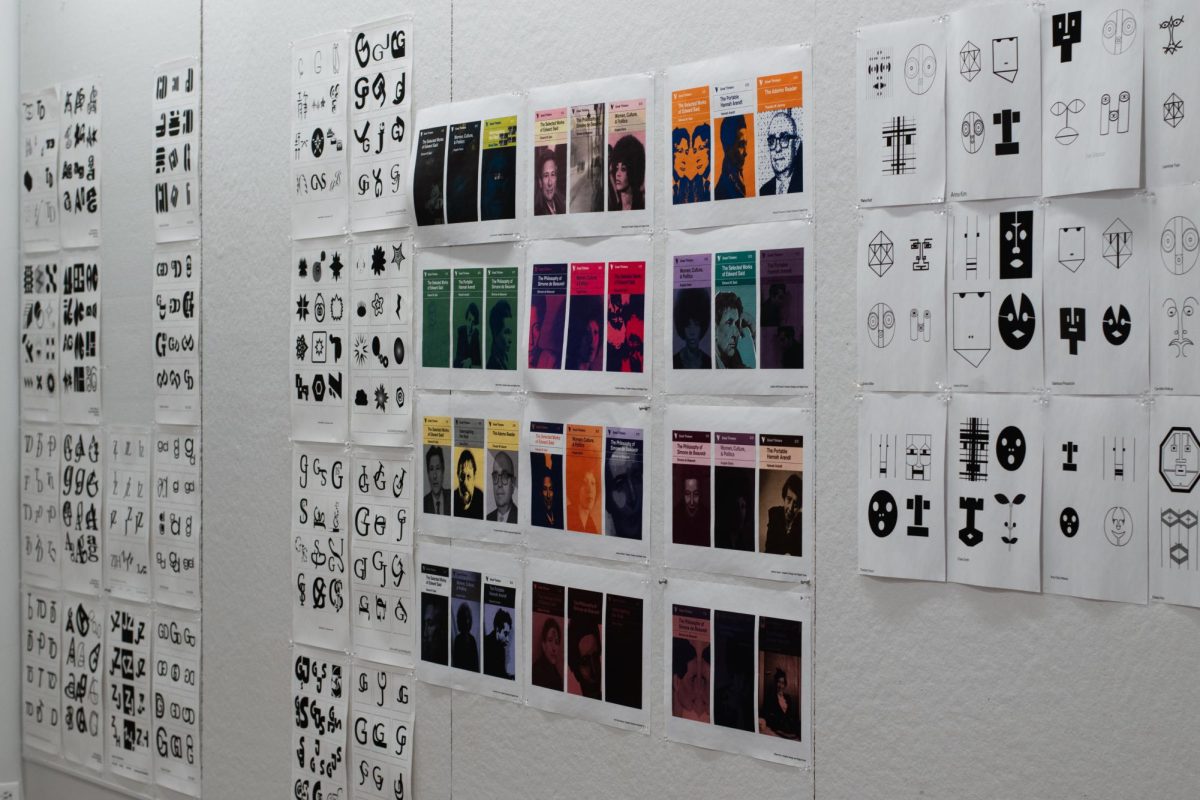“Do you want to go into teaching?” This is the immediate response I have heard time and time again after telling someone that I am majoring in English. Well, either that or the more condescending, “What do you plan to do with that?” I am certainly not alone in this experience — in fact, many Fordham students who major or plan to major in the arts or humanities have expressed concern about career prospects, whether that be in casual conversation or in-class introductions. This long-held belief that humanities and arts degrees have no benefit post-grad has led many a college first-year away from pursuing their passions, but is it anything more than a popular myth? Is there concrete evidence to support the claim that a humanities or liberal arts degree is rewardless? In fact, there is a wealth of evidence that suggests the contrary — recent surveys of the job market, employment statistics of graduated humanities majors and career readiness guidelines, along with the unique professional skills cultivated in humanities curricula, such as critical thinking, composition and communication.
Our current academic culture emphasizes science, technology, engineering and mathematics (STEM) and business fields, which leads to this misconception. In colleges across the country, funding is being funneled disproportionately towards STEM buildings, classes and programs. Literature and history programs are underfunded, which can be traced back to the nationwide attempt to strip “non-productive” majors and programs from colleges in favor of economizing. In some cases, colleges like the University of Wisconsin at Stevens Point seriously considered eliminating English, history and philosophy majors altogether.
This long-held belief that humanities and arts degrees have no benefit post-grad has led many a college first-year away from pursuing their passions, but is it anything more than a popular myth?
Most of my peers are likely familiar with internet jokes that make fun of humanities majors and the liberal arts, whether they register these jokes as harmful or not. It would be difficult to find a TikTok of anyone holding up their degree in a field such as gender studies, music theory, philosophy or creative writing without a string of comments making quips like “just put the fries in the bag, bro” — the punchline being that their academic passion is fruitless, as they will ultimately be unemployed or working minimum wage jobs. However, these jokes are not founded in truth.
Data from a 2023 study by the Federal Reserve Bank of New York shows that humanities majors and STEM majors report similar levels of unemployment: Anthropology majors, physics majors and computer engineering majors have the highest level of unemployment at 9.4%, 7.8% and 7.5%, respectively. Computer science majors reported a 6.3% unemployment rate, and liberal arts majors reported a 5.3% unemployment rate. Interestingly, these internet jokes about unemployment never target computer science majors, despite the recent dearth of entry-level coding jobs.
Interestingly, these internet jokes about unemployment never target computer science majors, despite the recent dearth of entry-level coding jobs.
In order to get the outlook on our own campus, I spoke with two Fordham staff members at the Career Center: Cole Chaloupka, the student engagement specialist here at Lincoln Center, and Allyson Blatz, the assistant director for student engagement at the Rose Hill campus. Both Chaloupka and Blatz work on Fordham’s programming and career development initiatives for students in the humanities.
Blatz said she observed distinctive strengths in students studying the arts and humanities.
“What’s really unique about humanities and liberal arts students is there is more of a focus on passion and impact,” she said. “I’ve seen students really channel that passion into awesome personal projects.”
Fordham’s career center uses the eight principles of career readiness, outlined by the National Association of Colleges and Employers, in a lot of their work with students. These eight principles are career and self-development, communication, critical thinking, equity and inclusion, leadership, professionalism, teamwork and technology. Both Blatz and Chaloupka mentioned that humanities majors frequently meet this criteria for career readiness, especially in their strong communication and critical thinking skills.
“We have employers come to Fordham’s campus all the time,” said Blatz. “They talk about how they value … collaboration, time management, communication, critical thinking; and these are skills that don’t all come from more technical or specialized degrees, so, for example, tech or business degrees. They come out of humanities majors.”
“What’s really unique about humanities and liberal arts students is there is more of a focus on passion and impact. I’ve seen students really channel that passion into awesome personal projects.” Allyson Blatz, assistant director for student engagement at FCRH
Right now, employers are looking for college graduates who possess skillsets that are often cultivated by humanities curriculums, yet so many humanities majors, myself included, have been conditioned to think that they have limited options when it comes to entry-level careers, or that teaching is one of their only bets at steady employment. While teaching can be a fulfilling and lucrative career, there is so much more out there for students holding humanities and arts degrees, and it is unrealistic for every humanities major to limit themselves to just one career path.
Chaloupka mentioned a “crisis in critical thinking” that is occurring in higher education right now due to the prevalence and overuse of generative artificial intelligence. Chaloupka argued that the humanities curriculum actually combats this decline in critical thought.
“The humanities is set up to encourage students to do these readings and think and ask questions,” Chaloupka said. “That is going to be so important to be able to counter some of this access to lazily figuring things out at our fingertips.”

Seneca Farhy, Fordham College at Rose Hill ’26 and a history major, said that she is strongly against the use of artificial intelligence in education largely because of her field of study.
“With the way that history has pushed me to think so critically, I just don’t like feeling like that is being taken away from me, or that I can cop out of thinking about things,” Farhy said.
Farhy has been spotlighted by Fordham for her accomplishments in historical research, namely a 10-week summer internship at The New York Historical where she worked on a Harlem Renaissance exhibition highlighting the leading role that Black and LGBTQ+ New Yorkers played in that movement. Farhy said that the skills she learned while studying history — critical thinking, knowledge of historical patterns, writing and reading comprehension — benefited her greatly during this internship.
“I feel like today, where everything wants to grab your attention in an instant, we are taught a lot of times what’s worth your attention and what is not,” Farhy said. “But I think that studying history has allowed me to slow down and get the full picture of things and ask questions. I feel like I was able to translate this into my job really well over the summer. It helped to be thorough and to know that you can ask questions, and knowing what the right questions are to ask.”
“The humanities is set up to encourage students to do these readings and think and ask questions. That is going to be so important to be able to counter some of this access to lazily figuring things out at our fingertips.” Cole Chaloupka, student engagement specialist at FCLC
Farhy sees herself pursuing history in the future, whether that be in her free time or in her career, stating that she definitely sees herself spreading that love and passion for history to others in whatever way she can.
On a larger scale, college tuition is rising rapidly across the country, and the economy is looking bleak. Thus, many students view college not as an intellectual endeavor, but rather a mandatory stepping stone between a high school diploma and a bachelor’s or master’s degree; personal interest in one’s major has become secondary to its average starting salary. Plus, the barrier of entry for jobs seems to be increasing, with a bachelor’s degree seen as the bare minimum, and extracurriculars, internship experience and LinkedIn holding significantly more weight. Simply holding a college degree in any field is not enough anymore for many graduates to secure entry-level jobs with satisfactory salaries, particularly here in New York City, where the cost of living is incredibly high.
“I support pursuing careers in the humanities because, well, it’s in the word: It’s human, and it helps you connect to other people, and humans are easier to connect with than money.” Seneca Farhy, FCRH ’26
Education for the sake of education may be losing its value in our society, yet humanities and arts majors, against all odds, are able to apply their unique creative and academic skills in the workforce to find high-paying jobs. The National Humanities Alliance (NHA) published a recent article called “The Humanities Pathway to Career Success,” in which they reported that 78% of surveyed employers named critical thinking as a “very important” skill, while only 49% of employers reported recent graduates being “very prepared” in that area. The NHA also reported in this article that humanities majors were statistically scoring higher than the average applicant on graduate school entrance exams across all fields of study.
American society, in many ways, insists that STEM is the future and places less value in the arts and humanities. While STEM is integral to technological advancements, those advancements must be carefully guided by human ethics. Art, music, literature, philosophy and history have always been at the center of human culture and human advancements, and, especially now, they are needed in the workforce. These fields of study are of critical importance in the age of generative artificial intelligence, where human creation is being steadily overtaken by technological innovation.
“I support pursuing careers in the humanities because, well, it’s in the word: It’s human, and it helps you connect to other people, and humans are easier to connect with than money,” Farhy said.
Before writing off a major in the humanities or arts as a waste of time and money, consider that it might just be your secret weapon when it comes to career success — now more than ever.


